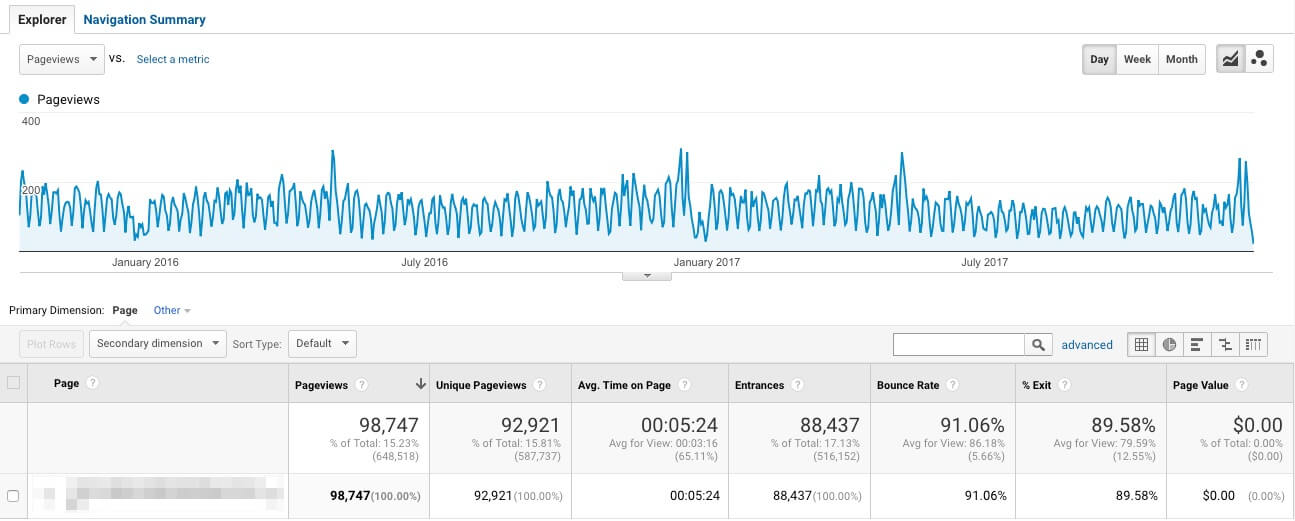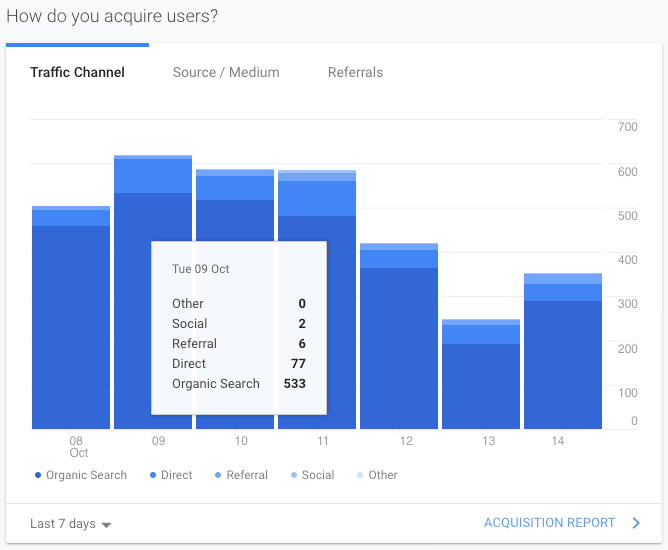For many years now, search engine optimization (SEO) has been one of the secret weapons small businesses have been able to use to compete at both local and national levels for online visibility. As SEO has become more popular, more businesses have been willing to dip their toes in the water hoping for success.
To be successful, however, small business SEO needs to be more than just a “one-day build.” It’s important to understand that search optimization is a process, not a product.
What Is SEO, Exactly?
The simplest way to explain search engine optimization is to say that it’s a way of writing, editing, and publishing content to make it easy for search engines to find, index, and rank.
SEO aims to increase the quantity and quality of traffic to your website through organic search engine results.
Because SEO is a process, it’s something that needs to be done for every piece of content on your business’s website, including:
- Blog posts
- Page content
- Images
- Videos
- Social media posts
Each time a new piece of content is created and published, it must be optimized for search engines. Even old content optimized when published initially may need to be re-optimized over time as traffic and user behavior change.
This is why doing SEO once, often when a new website launches, and then not doing any more optimization never achieves the results businesses are hoping for.
Benefits Of Small Business SEO
The good news is that when small business SEO is done right, it can boost your company’s customer and lead generation pipeline.
SEO continues to be popular as a sales and marketing investment because it often produces the most benefits for the lowest cost. Compared to other online marketing channels like pay-per-click ads, remarketing/retargeting, or even social media marketing, SEO offers the lowest barrier to entry.
Additionally, the most significant selling point for doing small business SEO is that once a piece of content has been optimized and published, it will generate value indefinitely. Let that sink in for a moment. Here is the performance of a single business blog post over 2+ years:

With paid search advertising (a.k.a. pay-per-click), your ads stop appearing when you stop spending money. With a well-optimized blog post that ranks well in search engines, that post will continue generating traffic for years after its publication.
Committing To Search Engine Optimization
Small business SEO often fails because businesses don’t stay committed long term. The one drawback to SEO is that it often takes a year or more before your website will start to see noticeable results from your efforts.
Successful SEO also requires businesses to consistently publish relevant, high-quality content that their audience will find valuable. Publishing a couple of posts one week and then nothing for two months is not good SEO.
Content creation can be complex, especially for “solopreneurs” or businesses with only a few employees. Finding time to create engaging blog posts, social media posts, videos, and others may prove challenging. Even larger organizations with dedicated marketing personnel often struggle to keep up with getting new content published regularly.
Outsourcing content creation to a content writer or digital marketing agency that specializes in SEO is a standard option that many businesses take advantage of. When going that route, it’s essential to closely monitor the content any third party creates to ensure it’s both factually accurate and aligns with your brand and messaging.
How To Measure Success
If you decide to pursue a small business SEO strategy, either internally or with the help of an outside partner, it’s critical to know how to measure SEO performance.
Publishing many blog posts, videos, and social media messages is great, but: 1) How do you tell if they’re generating traffic to your website? 2) Assuming your SEO drives people to your site, what do you want them to do when they get there?
The answer to the first question is to use a website analytics tool, the most popular (and free) option is Google Analytics. An analytics tool will provide high-level and granular details about your website and SEO performance. If you are working with an outside partner for SEO, you should insist on having access to your analytics account or at least get monthly analytics reports that show how organic traffic is performing.

The answer to question number two will vary depending on your type of business. The two most common goals for a small business SEO strategy are to get website visitors to call your business directly or submit a form with contact information so a salesperson can follow up on those leads.
Conveniently, almost every analytics tool (including Google Analytics) can be set up to track things like phone calls and form submissions. This gives you a complete end-to-end picture of your SEO funnel from start to finish. You’ll see how many visitors your site gets, which content gets the most visits, and how many people convert into leads or customers on your site by calling or submitting a contact form.
This small business SEO marketing funnel is why SEO is so popular and powerful. It gives businesses of any size almost total control and visibility into their online marketing performance.
How To Get Started
If you’re interested in SEO and want to take a DIY approach, there’s no better place to start than The Beginner’s Guide To SEO from Moz. You’ll want to settle in and allow a whole morning or afternoon to get through the guide because there’s a ton of information.
When you’re ready to get your feet wet, consider installing Yoast SEO if you have a WordPress website. Yoast is the best and easiest way to see how your created content measures up. It’s also free, which is fantastic. This video from Ahrefs.com is an excellent WordPress SEO tutorial for beginners.
If you want outside help with implementing a small business SEO strategy, you’ll most likely need to spend some time researching and interviewing local digital marketing agencies to see what services they offer.
You can also try a site like UpWork, post a job ad for SEO specialists, and see what you get.


